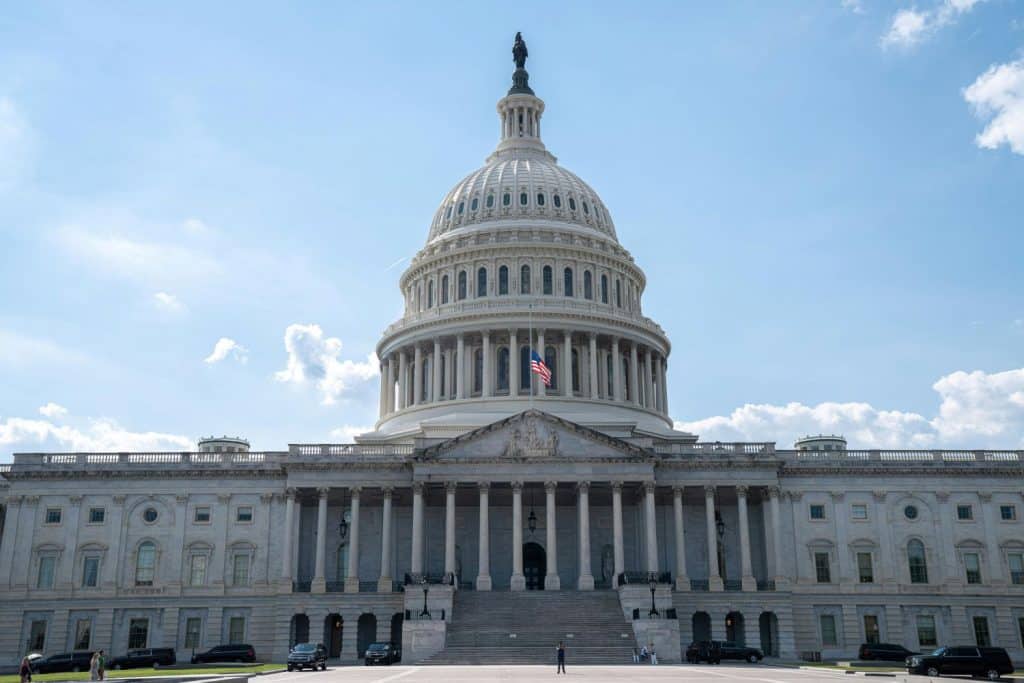Update from the Aurora Institute and The Learning Accelerator on Proposed Federal Budget Cuts to Medicaid and SNAP: Essential Systems in Supporting Learners to Thrive
CompetencyWorks Blog

Every learner deserves access to the supports they need to learn and thrive, and schools across the country are working hard to provide them. However, under proposed federal policy changes, this work will become significantly harder.
Educators have long recognized that academic success depends on more than just instruction. Supports like nutrition and healthcare aren’t supplemental; they’re foundational to learning. These critical conditions are now at risk — proposed federal budget cuts to the Supplemental Nutrition Assistance Program (SNAP) and Medicaid, currently under consideration in reconciliation bills in both the Senate and the House, would have devastating consequences for millions of children. While these programs may not be part of traditional education budget debates, they are essential to the systems that allow students to attend school, access services, and thrive. Rolling them back will reverberate through classrooms nationwide, especially for learners already facing the greatest barriers.

These threats are also unfolding in the context of a broader funding crisis. At the same time these cuts are being debated, the U.S. Department of Education is withholding nearly $7 billion in already-appropriated ESSA Title funds, delaying access to essential resources that schools and students rely on. With the new school year about to begin, these delays and potential cuts will have immediate consequences in classrooms, affecting staffing, programming, and students’ ability to get the care, nutrition, and support they need to learn.
To understand what these proposed cuts would mean for learners, particularly in this moment of critical uncertainty, we must understand how schools depend on these programs every day.
Medicaid’s Impact on Student Healthcare
For many learners, schools aren’t just places to learn, they’re where they receive critical healthcare. From managing chronic conditions to accessing mental health counseling or developmental therapy, students often rely on services delivered within school buildings to stay safe and supported.
Medicaid makes this possible. As the fourth-largest source of federal funding for K-12 public schools, Medicaid supports more than $7.5 billion in school health services annually. These dollars fund a wide range of physical and mental health supports, including the salaries of school nurses, psychologists, occupational and physical therapists, and speech-language pathologists. Medicaid is especially vital for students with disabilities, helping schools fulfill their legal obligations to provide services outlined in students’ Individualized Education Programs (IEPs).
Cuts to Medicaid would directly impact the care students receive in school. Without this funding, districts could be forced to scale back services, leave key staff positions unfilled, or shift already-limited resources away from instruction. The result? Gaps in care, increased risk for students with health needs, and schools that are less equipped to provide safe and supportive environments for learning.
SNAP’s Impact on Student Nutrition
SNAP does more than support families at home–it ensures that millions of students can access school meals through a streamlined process known as direct certification. This system reduces paperwork, minimizes stigma, and helps schools provide consistent, reliable nutrition without overburdening staff.
Proposed changes to SNAP would disrupt this access. Under the House bill, 4 million kids stand to lose SNAP benefits, and more than 18.3 million students could lose automatic eligibility for school meals. The resulting administrative burden would fall heavily on schools, introducing delays, confusion, and new gaps in access at a time when food insecurity remains a major barrier to learning.
Instead of strengthening the systems that support students, these proposals would unravel them, undermining a process that helps ensure every child can come to school nourished and ready to participate.
High-Quality Programs Integrate Whole-Child Supports
For decades, schools have gone beyond academics to meet their students’ basic needs, providing meals, healthcare, and emotional support to create the conditions where learning is possible. This work is not new. What is new is how much harder that work will become if proposed federal cuts to Medicaid and SNAP move forward.
In 2023, The Learning Accelerator (TLA) partnered with Tec Connections Academy (TECCA), a statewide virtual public school in Massachusetts, to examine how nontraditional school models can still ensure students have access to essential supports, like consistent nutrition. Together, TLA and TECCA conducted a national landscape scan of school nutrition policies and a deep-dive review of national efforts to meet student needs in a virtual setting.
The insights from this work reveal what’s possible when schools and partners design intentionally for whole-child support. At the same time, they also underscore a difficult truth: schools can only go so far on their own. If foundational programs like SNAP and Medicaid are weakened, even the most committed and innovative schools will face steeper barriers, and students will face greater risk. At the Aurora Institute and TLA, we focus on building more equitable, learner-centered futures through personalized, competency-based approaches and holistic student development. This work starts with ensuring that every learner is able to come to school healthy and well nourished.
A Call to Action: Preserve Services Students Rely On
Education has always been about more than academics. It’s about supporting the whole child, ensuring every student has what they need to grow, thrive, and access meaningful learning. That includes consistent access to food, physical and mental healthcare, and the stability that enables students to show up and engage.
Schools are working hard to meet these needs. However, they can’t do it alone. Programs like Medicaid and SNAP form the backbone of the support systems students rely on. Combined with the recent withholding of Title funds, these threats compound an already strained system, putting essential services at risk right as students return to school, and undermining the infrastructure that makes meaningful learning possible.
Learners from every background, region, and political affiliation depend on these supports, and protecting them should be a shared priority. We urge Congress to preserve funding for Medicaid and SNAP in the final reconciliation bill.